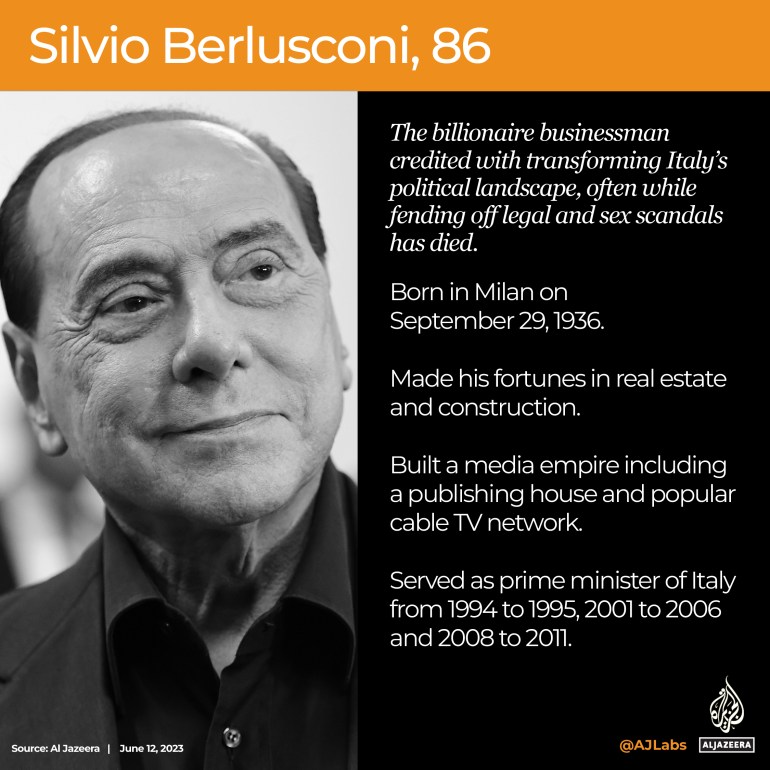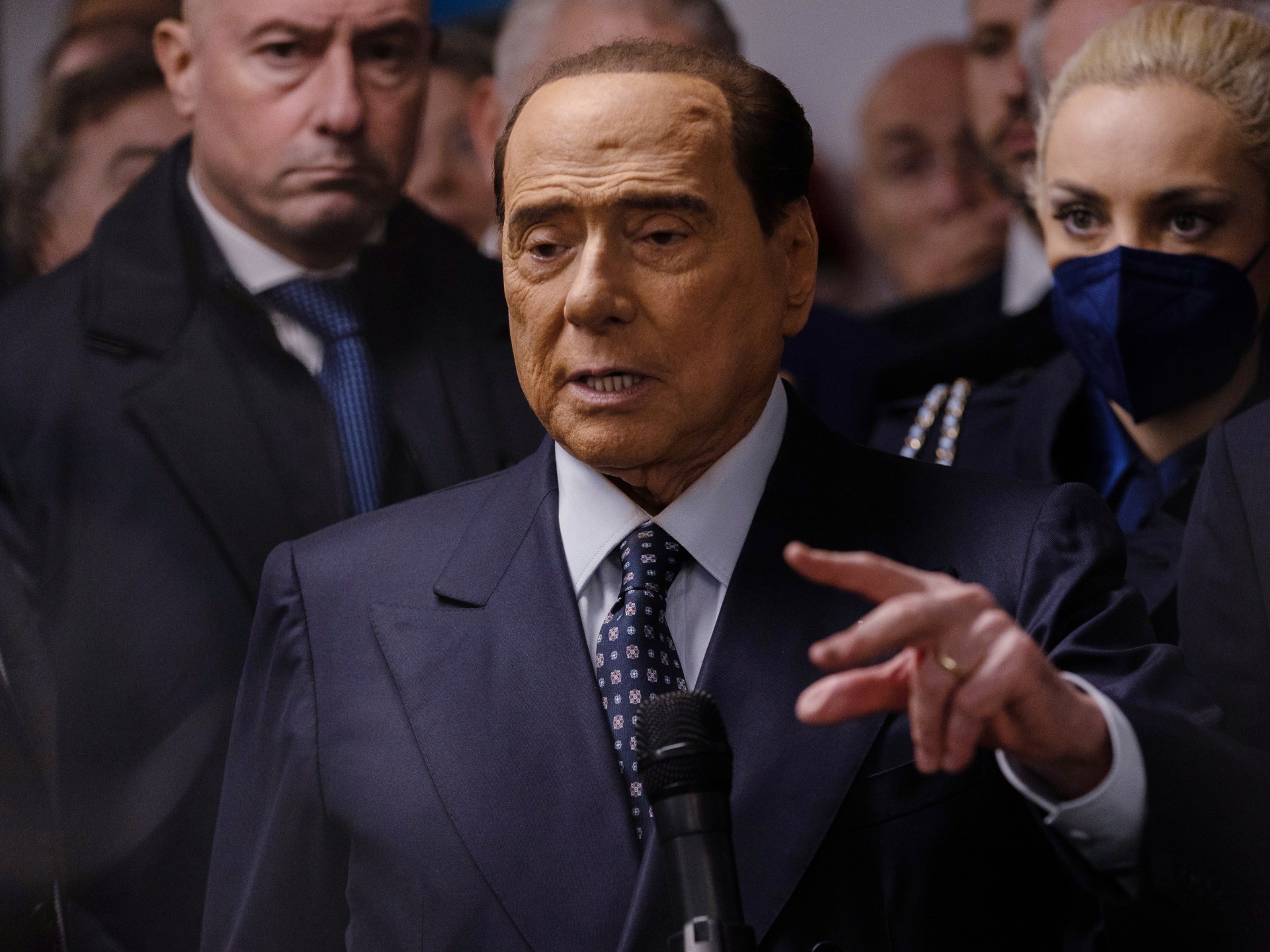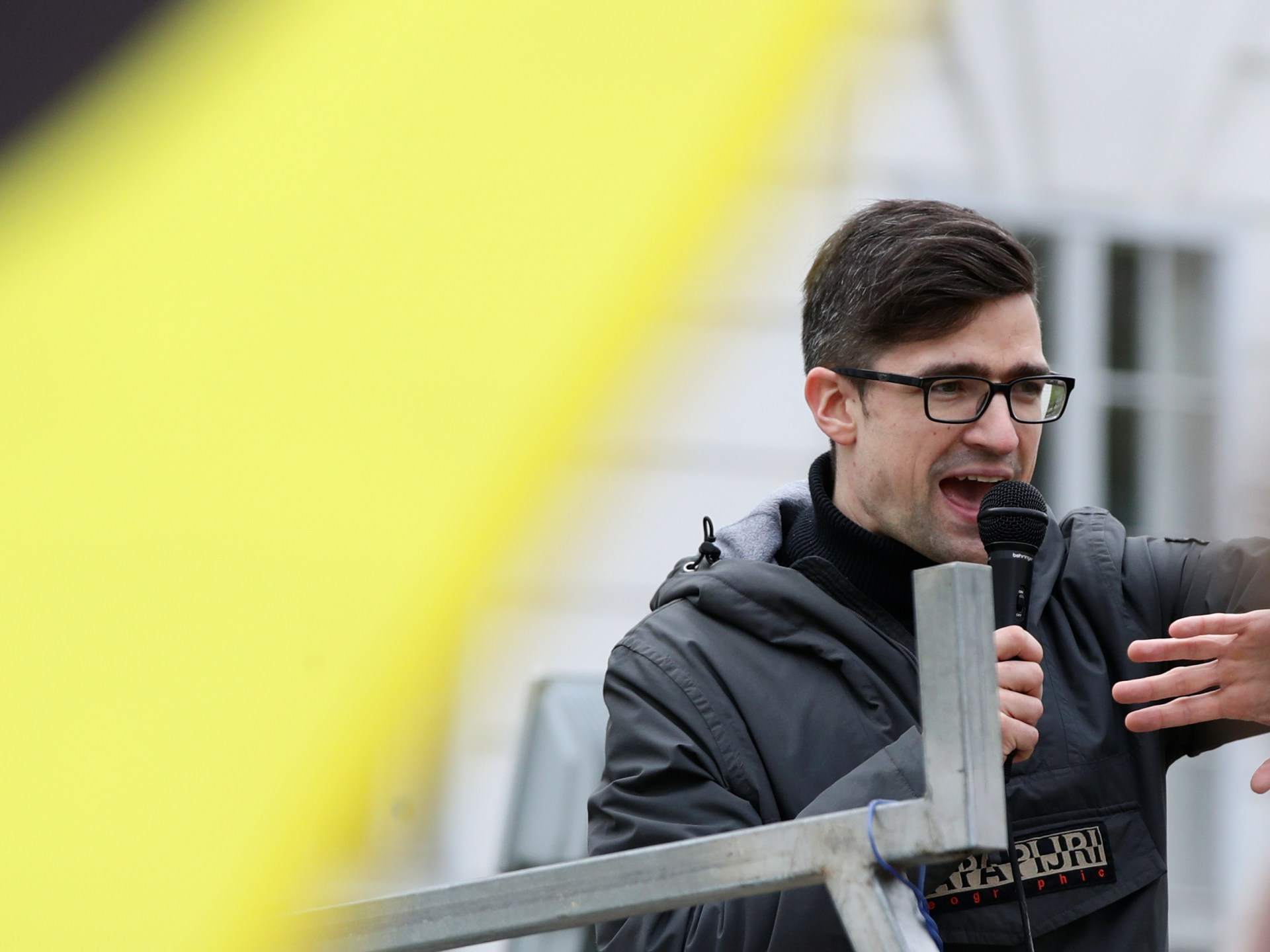‘Huge void’: Berlusconi dies after several bouts of illness
Silvio Berlusconi, Italy’s former prime minister, has died.
He was 86.
The billionaire businessman created Italy’s largest media company before transforming the political landscape – while fending off multiple legal and sex scandals.
He had suffered several bouts of ill health in recent months.
He was hospitalised in 2020 after contracting COVID-19, describing it as “perhaps the most difficult ordeal of my life”.
In April 2023, doctors revealed he was in intensive care suffering from leukaemia and a lung infection.
He was admitted to a Milan hospital on Friday for what aides said were preplanned tests related to his leukaemia.
Berlusconi’s death leaves a “huge void” because he was a great man, Italian defence minister Guido Crosetto said on Twitter on Monday.
“I loved him very much. Farewell Silvio,” Crosetto wrote.
Berlusconi’s Forza Italia party was a coalition partner with current premier Giorgia Meloni, a far-right leader who came to power last year, although he held no position in the government.
Alan Friedman, who authored a biography of Berlusconi titled My Way, told Al Jazeera that the late premier was a “very historic figure in post-war Italian history”.
“Berlusconi was a controversial figure,” he said. “He was in many ways the original populist in Italy, back in the nineties. Although he was controversial, he was also very much loved by his followers.”
Al Jazeera’s Hoda Abdel-Hamid, reporting from Sardinia, said Berlusconi had a “quiet night”.
“But then this morning, things moved very quickly. His close relatives, his brother, were all called in. And then shortly after, the hospital issued a statement that Berlusconi had died after battling this form of leukaemia that had seen him spend about six weeks in hospital, earlier this year.
“He was considered a kingmaker in politics. His party, the right coalition, is still in power under the leadership of Meloni. He is someone who has had a huge impact on Italian politics. He was the longest-serving prime minister. But he also had an impact on Italians on a daily basis, because he also transformed television with his group, Mediaset. Rightly or wrongly, he impacted the Italian media and way of life.”

Years of scandals
As Berlusconi aged, some derided his perpetual tan, hair transplants and live-in girlfriends who were decades younger. For many years, however, Berlusconi seemed untouchable despite the personal scandals.
Criminal cases were launched but ended in dismissals when statutes of limitations ran out in Italy’s slow-moving justice system, or he was victorious on appeal.
Investigations targeted the tycoon’s steamy so-called “bunga bunga” parties involving young women and children, or his businesses, which included the soccer team AC Milan, the country’s three biggest private TV networks, magazines and a daily newspaper, and advertising and film companies.
Only one led to a conviction – a tax fraud case stemming from a sale of movie rights in his business empire. The conviction was upheld in 2013 by Italy’s top criminal court, but he was spared prison because of his age, 76, and was ordered to do community service by assisting Alzheimer’s patients.
He still was stripped of his Senate seat and banned from running or holding public office for six years, under anti-corruption laws.
He stayed at the helm of Forza Italia, the centre-right party he created when he entered politics in the 1990s and named for a soccer cheer, “Let’s go, Italy.” With no groomed successor in sight, voters started to desert it.
He eventually held office again – elected to the European Parliament at age 82 and then last year to the Italian senate.
Berlusconi’s party was eclipsed as the dominant force on Italy’s political right: first by the League, led by anti-migrant populist Matteo Salvini, then by Meloni’s Brothers of Italy party, with its roots in neo-fascism. Following elections in 2022, Meloni formed a governing coalition with their help.
He suffered personal humiliations as well.
Berlusconi lost his standing as Italy’s richest man, although his sprawling media holdings and luxury real estate still left him a billionaire several times over.
“He will be considered a controversial figure, who never really accomplished anything on economic policy, [or by] doing great reforms in Italy. And he was mostly interested in protecting himself. So he will be considered a brilliant but flawed figure in history,” said Friedman, the author.




